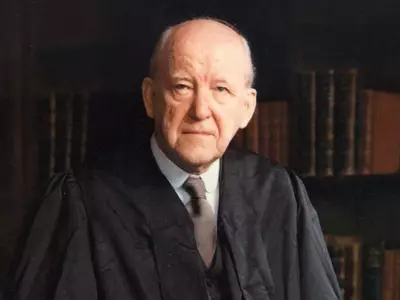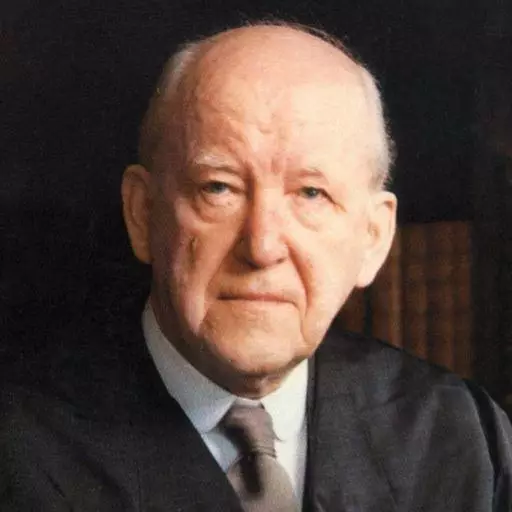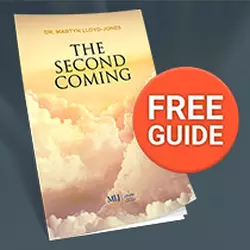
Dr. Martyn Lloyd-Jones stood at a significant turning point in the history of homiletics. While modern preachers often assume a fluid style of preaching for the sake of modern listeners, Dr. Lloyd-Jones warned against the rising tendency for the congregation to dictate from the pulpit. What is the relationship between the pew and the pulpit? How are preachers to understand their method of preaching in light of their congregation? In this sermon titled “The Congregation” from the “Preaching and Preaching” series, Dr. Lloyd-Jones cautions that ministers must not be swept away by objections to traditional pulpit ministry. He outlines the new arguments that were being promoted as the most effective way to reach modern listeners with the gospel. Responding point-by-point to these new homiletical methods, Dr. Lloyd-Jones counters them from a theological point of view by seeking to understand the nature of humanity, the unity of the church, and the role of the Holy Spirit in preaching. Always seeking to find balance, however, Dr. Lloyd-Jones also examines 1 Corinthians 9:19–23 and highlights the importance of flexibility within the pulpit. Listen as Dr. Lloyd-Jones helps preachers discern a balanced approach to preaching to a modern congregation.
April 2, 2025

Who is to preach? What is the call to ministry? These questions come naturally to any man who rightly feels the weight of delivering the word of God to the people of God. Can any man stand in the pulpit and preach? Are there problems with the increasing number of churches relying on lay preachers? In this lecture on the call to ministry, Dr. Martyn Lloyd-Jones tackles this controversial topic from his series on “Preaching and Preachers”. More than this, he challenges preachers to think deeply about the notion of calling. While the idea of calling is often used by Protestants, sometimes it remains ambiguous in meaning and empty, and without specifics on how to apply the idea in a concrete manner. With great clarity Dr. Lloyd-Jones outlines not just a definition of calling but how a man can begin to test his own calling. Dr. Lloyd-Jones considers further the training of preachers. He discusses various departments of theology such as systematic theology, the use of biblical languages, and church history. Listeners may find with Dr. Lloyd-Jones a surprising alternative to the dominant training model for homiletics. This lecture will benefit the listener whether they are a lay person in their church, a man testing his calling to preach, or a seasoned pastor trying to help other men discern their calling.
April 1, 2025

How much value is there in a sermon not delivered? Clearly, the mere research and writing of a manuscript or sermon outline cannot be considered preaching. Preaching is both the sermon and the act of delivering the message, says Dr. Martyn Lloyd-Jones. In this lecture on preaching, he focuses on the general elements preachers need to be aware of for their calling. While Dr. Lloyd-Jones avoids providing the preacher rules or regulations for preaching, he does propose a number of important traits and qualities required for proper delivery of the word of God to the people of God. Based upon his many years of experience, the British evangelical preacher shares perhaps some unfamiliar words of wisdom on preaching that contemporary preachers need. How does one approach the art of preaching? Have they thought about the role of authority, persuasion, or zeal in preaching? Does being serious about preaching mean being dull or boring? Allow Dr. Lloyd-Jones to help preachers think about their own approach to sermon delivery by listening to this lecture from the series on “Preaching and Preachers”.
March 31, 2025

In this sermon titled “Form of the Sermon,” Dr. Martyn Lloyd-Jones argues that all preaching should be theological. In both evangelistic preaching and general preaching, the preacher must know both biblical theology and systematic theology; without them the preacher risks error. But while content is of utmost importance for preaching, Dr. Lloyd-Jones states, the form of the sermon is equally important. Those who rightly value content in preaching can sometimes misunderstand the value and the art of composing a sermon. What form should theological preaching take? Does the preacher think of his sermon in the same way one thinks of writing an essay? If not, what is the difference? Is there a difference between a sermon and a lecture on theology? How about a commentary on the passage? Is there a difference between a biblical sermon and a running commentary on a text? Dr. Martyn Lloyd-Jones explores these questions in this important lecture on preaching. While the proclamation of sound doctrine is non-negotiable for preaching, sermons will not serve the people of God unless the form is equally considered. Listen as Dr. Lloyd-Jones helps preachers think through this important aspect in service of God’s church.
March 30, 2025

What is preaching? In this sermon titled “The Sermon and Preaching,” Dr. Martyn Lloyd-Jones says the preacher is the man to deliver the message from God to the people. The preacher is an ambassador for Christ. He’s not there to entertain people toward Christ. Dr. Lloyd-Jones explains that preaching is a transaction where the people are given the mind of God through the written word, explained by a faithful preacher. The danger arrives when preaching is replaced by digital versions, print versions, group discussions, and therapy sessions that foster opinion. People are dealing with the living God and they must never approach the subject in the cavalier manner as if His very existence were up for debate. Since the heart of preaching addresses humanity’s eternal destiny and design, one cannot reduce this message to a trivial discussion. There is no neutral point where Christian and non-Christian can meet. There’s no morally neutral ground that they can agree on since one is of darkness and the other is of light. As Paul says in 1 Corinthians, God uses the foolish to expose the supposedly wise. Too much of the world today—and the church today—wants to make a rebellious person look wise. Apart from humility, no one will ever understand revelation. Jesus Himself thanked God that He hid the gospel from the “wise” and revealed it to “babies.” As Dr. Lloyd-Jones concludes, true preaching lifts up Christ so that He draws people to salvation.
March 29, 2025

In this sermon titled “No Substitute,” Dr. Martyn Lloyd-Jones opens the word of God and confronts the tendency to depreciate preaching at the expense of other forms of activity. As those who have the good news, Christians must tell the truth. Other agencies, politicians, cults, false religions, and nonprofits can do their work, but they cannot preach the gospel. They can ease the pain of the human condition, but they cannot change the heart. The primary task of the church is not to make a person happy, good, or even well off. The primary task of the church is to deliver the truth about humanity and the remedy in Christ. The danger is that the church will tinker with the general symptoms and not address the cause. It takes a specialist to isolate the radical problem and deal with it. This is the work of every preacher, says Dr. Lloyd-Jones. When the church takes care of its primary purpose, God works through it to provide relief to others. The Protestant Reformation birthed hospitals, schools, many other relief efforts, and provided a stimulus to science, literature, etc. Dr. Lloyd-Jones adds that the preaching of the gospel from the pulpit, applied by the Holy Spirit, has been a means of dealing with personal problems that the preacher knows nothing about. Counseling has its place, but most counseling will be done from the pulpit. Anything else is a failure to fulfill the great mandate given to the church.
March 28, 2025

After 42 years in ministry, Dr. Martyn Lloyd-Jones proclaims the most urgent need in the church today is that of preaching. The world says it is outdated, but to Christians, it is the way God intended His word to be taught through the ages. Without question, there are things in the church that are wrong, such as traditionalism and institutionalism. However, preaching is still its primary task. In this sermon titled “Primacy of Preaching,” Dr. Lloyd-Jones identifies the key reasons why preaching has suffered a serious downgrade in the church today. He begins recounting those who make light of the orator’s ability, suggesting that if a man is a great speaker, then he is not honest. Another reason preaching has suffered is that with all the availability of information through radio, TV, and books, there is less perceived need for preaching. Dr. Lloyd-Jones explains that it is one thing to be a master of fine phrases, but not the master of the sacred text. Essays are not sermons, and eloquent oratory can be the form replacing the substance. He further points out how the emphasis on entertainment has damaged the power of the pulpit saying, “So much time is spent creating the atmosphere that there’s no time to preach in the atmosphere.” This downgrade impacts those outside the church. Dr. Lloyd-Jones proclaims that Jesus did not come into the world to heal the sick; He came to save sinners. The world did not stop Christ from doing miracles, but they crucified Him for His preaching. The preacher’s priority is not to serve tables, but to do the ministry of the word and prayer. Renewed preaching always heralds the dawn of reformation.
March 27, 2025

Acts 2:42-47 — In this sermon, the second of two sermons preached at the opening of Zion Evangelical Baptist Church (Rippon, England) on December 8th 1965, Dr. Martyn Lloyd-Jones addresses the critical importance of understanding the doctrine and true nature of the Christian church.
What does an authentic, Spirit-filled Christian church look like? In this sermon examining the early church in Acts 2:42-47, Dr. Martyn Lloyd-Jones argues that the defining mark is an insatiable desire to gather together, rooted in their new life in Christ. The early believers met daily because they shared the same salvation experience, the same newfound separation from the world, and the same joy in their Savior. Their example stands in stark contrast to many professing Christians today who see church as a duty rather than a delight. Dr. Lloyd-Jones asserts that the only thing that will draw the masses to church is seeing a body of believers who wouldn't miss gathering for anything because it thrills them to the depths of their being. Revival occurs when people are truly born again and treasure Christ and His church above all else. This passion and authenticity is the great need today. Please note that the ending of this sermon was lost from the original recording.
March 26, 2025
In this sermon, the first of two sermons preached at the opening of Zion Evangelical Baptist Church (Rippon, England) on December 7th 1965, Dr. Martyn Lloyd-Jones addresses the critical importance of understanding the doctrine and true nature of the Christian church. He argues that many of the problems and divisions within the church stem from a lack of clarity about what the church really is and its function in the world. With the rise of the ecumenical movement and the increasing confusion in society about the church's message, Dr. Lloyd-Jones asserts that it is imperative for Christians to go back to the New Testament to rediscover the church's true identity and purpose. He warns against merely defending the status quo or attempting to modify existing structures, instead urging believers to faithfully study and apply the biblical teaching on the church.
March 25, 2025

In this sobering assessment of the moral and spiritual state of the nation, Dr. Martyn Lloyd-Jones diagnoses the root causes of societal decay in Britain and the West. In this sermon, preached in 1971 to the British Evangelical Council, he argues that the problems go far deeper than mere disobedience or "sleeping sickness," as in the 18th century. Rather, he asserts that a moral "poison" has entered the very bloodstream of society, leading to a denial of God, moral law, and the supernatural. Tracing factors like Victorianism, the novelists, the World Wars, and the trivializing influence of the media, Dr. Lloyd-Jones shows how foundations have been steadily eroded. He emphasizes that the church alone truly understands the gravity of the predicament and its only remedy. The church's role is indirect but vital in determining the state of the nation. Dr. Lloyd-Jones cautions against superficial analysis and insists the root issue is theological - the abandonment of God and His moral law. Citing historians and thinkers, he argues the "morality gap" is greater than ever as man's rebellion reaches its climax. Yet he concludes that the church, armed with the gospel, remains the only hope to speak to the culture and see God's transforming work. Please note that the end of this sermon is missing from the original recording.
March 24, 2025

 Learn How
Learn How





